Overview
History
Games
Photographs
Programs
Tickets
Schedules
Media Guides
Miscellaneous
Roster

The Internet Hockey Database
Wikipedia (Birmingham Bulls)
Wikipedia (WHA)
Wikipedia (CHL)
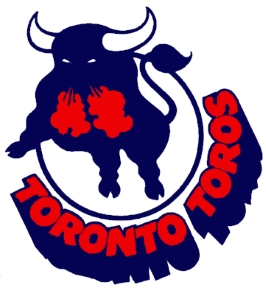 |
|
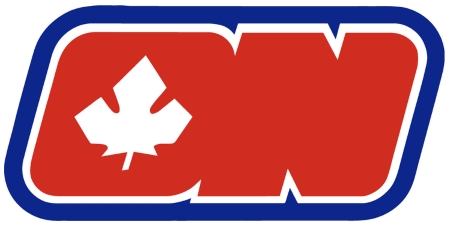 |
|
 |
|
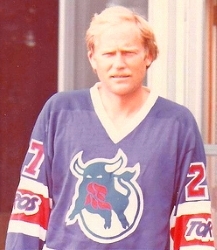 |
|
| Toronto Toros owner John F. Bassett |
|
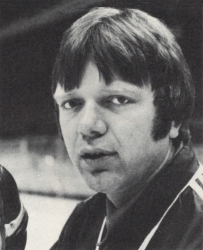 |
|
| Head coach Gilles Leger | |
 |
1976-77 World Hockey Association |
|||||||||
| xxx | xxx | xxx | xxx | xxx | xxx | |||||
 |
 |
 |
 |
 |
||||||
| Birmingham Bulls | Calgary Cowboys | Cincinnati Stingers | Edmonton Oilers | Houston Aeros | ||||||
 |
 |
 |
 |
 |
||||||
| Indianapolis Racers | Minnesota Fighting Saints | New England Whalers | Phoenix Roadrunners | Quebec Nordiques |
||||||
 |
 |
|||||||||
| San Diego Mariners | Winnipeg Jets | |||||||||
| 1976-77 World Hockey Association |
|
| Western Division |
Eastern Division |
| Calgary Cowboys | Birmingham Bulls |
| Edmonton Oilers | Cincinnati Stingers |
| Houston Aeros | Indianapolis Racers |
| Phoenix Roadrunners | Minnesota Fighting Saints |
| San Diego Mariners | New England Whalers |
| Winnipeg Jets | Quebec Nordiques |
 |
|
| Head coach Pat Kelly | |
 |
|
| Head coach Glen Sonmor | |
 |
1977-78 World Hockey Association |
|||||||||
| xxx | xxx | xxx | xxx | xxx | xxx | |||||
 |
 |
 |
 |
 |
||||||
| Birmingham Bulls | Cincinnati Stingers | Edmonton Oilers | Houston Aeros | Indianapolis Racers | ||||||
 |
 |
 |
||||||||
| New England Whalers | Quebec Nordiques | Winnipeg Jets |
||||||||
 |
|
| A classic cartoon that appeared in the Cincinnati Enquirer in 1978. | |
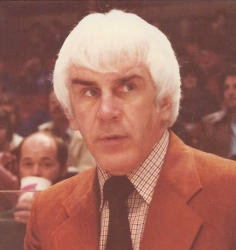 |
|
| Head coach John Brophy | |
 |
1978-79 World Hockey Association |
|||||||||
| xxx | xxx | xxx | xxx | xxx | xxx | |||||
 |
 |
 |
 |
 |
||||||
| Birmingham Bulls | Cincinnati Stingers | Edmonton Oilers | Indianapolis Racers | New England Whalers | ||||||
 |
 |
|||||||||
| Quebec Nordiques | Winnipeg Jets |
|||||||||
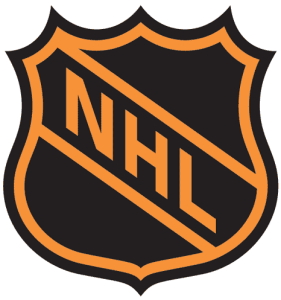 |
|
 |
|
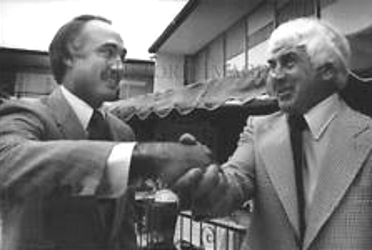 |
|
| Ownership group member Frank Falkenburg welcomes head coach John Brophy to the Central Hockey League |
|
 |
1979-80 Central Hockey League |
|||||||||
| xxx | xxx | xxx | xxx | xxx | xxx | |||||
 |
 |
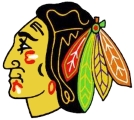 |
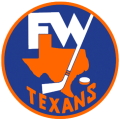 |
 |
||||||
| Birmingham Bulls | Cincinnati Stingers | Dallas Blackhawks | Fort Worth Texans | Houston Apollos | ||||||
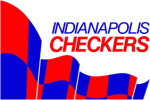 |
 |
 |
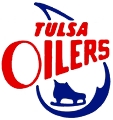 |
|||||||
| Indianapolis Checkers | Oklahoma City Stars | Salt Lake City Golden Eagles |
Tulsa Oilers | |||||||
| 1979-80 Central Hockey League |
|
| West Division |
East Division |
| Dallas Blackhawks | Birmingham Bulls |
| Fort Worth Texans | Cincinnati Stingers |
| Oklahoma City Stars | Houston Apollos |
| Salt Lake City Golden Eagles | Indianapolis Checkers |
| Tulsa Oilers | |
 |
1980-81 Central Hockey League |
|||||||||
| xxx | xxx | xxx | xxx | xxx | xxx | |||||
 |
 |
 |
 |
 |
||||||
| Birmingham Bulls | Dallas Blackhawks | Fort Worth Texans | Houston Apollos | Indianapolis Checkers | ||||||
 |
 |
 |
 |
|||||||
| Oklahoma City Stars | Salt Lake City Golden Eagles |
Tulsa Oilers | Wichita Wind | |||||||
| 1980-81 Central Hockey League |
|
| North Division |
South Division |
| Indianapolis Checkers | Birmingham Bulls |
| Oklahoma City Stars | Dallas Blackhawks |
| Salt Lake City Golden Eagles | Fort Worth Texans |
| Tulsa Oilers | Houston Apollos |
| Wichita Wind | |


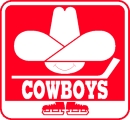

 
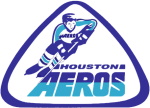

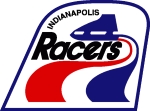  


 
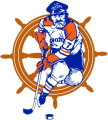   |
| Champions of the World Hockey Association |
|
| Year | Team |
| 1972-73 | New England Whalers |
| 1973-74 | Houston Aeros |
| 1974-75 | Houston Aeros (2nd) |
| 1975-76 | Winnipeg Jets |
| 1976-77 | Quebec Nordiques |
| 1977-78 | Winnipeg Jets |
| 1978-79 | Winnipeg Jets (2nd) |
| Years local team participated |
 |
Teams of the World Hockey Association |
|||||||||
| xxx | xxx | xxx | xxx | xxx | xxx | |||||
 |
 |
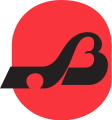 |
 |
 |
||||||
| Alberta Oilers 1972-73 |
Birmingham Bulls 1976-77 to 1978-79 |
Baltimore Blades 1974-75 |
Calgary Cowboys 1975-76 to 1976-77 |
Chicago Cougars 1972-73 to 1974-75 |
||||||
 |
 |
 |
 |
 |
||||||
| Cincinnati Stingers 1975-76 to 1978-79 |
Cleveland Crusaders 1972-73 to 1975-76 |
Denver Spurs 1975-76 |
Edmonton Oilers 1973-74 to 1978-79 |
Houston Aeros 1972-73 to 1977-78 |
||||||
 |
 |
 |
 |
 |
||||||
| Indianapolis Racers 1974-75 to 1977-78 |
Jersey Knights 1973-74 |
Los Angeles Sharks 1972-73 to 1973-74 |
Michigan Stags 1974-75 |
Minnesota Fighting Saints (I) 1972-73 to 1975-76 |
||||||
 |
 |
 |
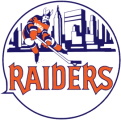 |
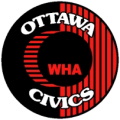 |
||||||
| Minnesota Fighting Saints (II) 1976-77 |
New England Whalers 1972-73 to 1978-79 |
New York Golden Blades 1973-74 |
New York Raiders 1972-73 |
Ottawa Civics 1975-76 |
||||||
 |
 |
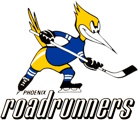 |
 |
 |
||||||
| Ottawa Nationals 1972-73 |
Philadelphia Blazers 1972-73 |
Phoenix Roadrunners 1974-75 to 1976-77 |
Quebec Nordiques 1972-73 to 1978-79 |
San Diego Mariners 1974-75 to 1976-77 |
||||||
 |
 |
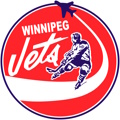 |
||||||||
| Toronto Toros 1973-74 to 1975-76 |
Vancouver Blazers 1973-74 to 1974-75 |
Winnipeg Jets 1972-73 to 1978-79 |
||||||||
| Champions of the Central Hockey League |
|||
| Year | Team | Year | Team |
| 1963-64 | Omaha Knights | 1974-75 | Salt Lake Golden Eagles |
| 1964-65 | St. Paul Rangers | 1975-76 | Tulsa Oilers (2nd) |
| 1965-66 | Oklahoma City Blazers | 1976-77 | Kansas City Blues |
| 1966-67 | Oklahoma City Blazers (2nd) | 1977-78 | Fort Worth Texans |
| 1967-68 | Tulsa Oilers | 1978-79 | Dallas Black Hawks (4th) |
| 1968-69 | Dallas Black Hawks | 1979-80 | Salt Lake Golden Eagles (2nd) |
| 1969-70 | Omaha Knights (2nd) | 1980-81 | Salt Lake Golden Eagles (3rd) |
| 1970-71 | Omaha Knights (3rd) | 1981-82 | Indianapolis Checkers |
| 1971-72 | Dallas Black Hawks (2nd) | 1982-83 | Indianapolis Checkers (2nd) |
| 1972-73 | Omaha Knights (4th) | 1983-84 | Tulsa Oilers (3rd) |
| 1973-74 | Dallas Black Hawks (3rd) | ||
| Years local team participated |
 |
Teams of the Central Hockey League |
|||||||||
| xxx | xxx | xxx | xxx | xxx | xxx | |||||
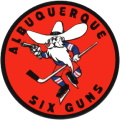 |
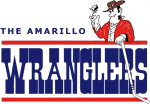 |
 |
 |
 |
||||||
| Albuquerque Six Guns 1973-74 |
Amarillo Wranglers 1968-69 to 1970-71 |
Birmingham Bulls 1979-80 to 1980-81 |
Birmingham South Stars 1982-83 |
Cincinnati Stingers 1979-80 |
||||||
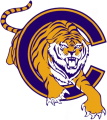 |
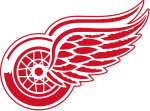 |
 |
 |
 |
||||||
| Cincinnati Tigers 1981-82 |
Cincinnati Wings 1963-64 |
Colorado Flames 1982-83 to 1983-84 |
Dallas Blackhawks 1967-68 to 1981-82 |
Denver Spurs 1974-75 |
||||||
 |
 |
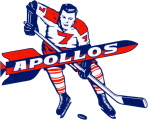 |
 |
 |
||||||
| Fort Worth Texans 1974-75 to 1981-82 |
Fort Worth Wings 1967-68 to 1973-74 |
Houston Apollos (I) 1965-66 to 1968-69 |
Houston Apollos (II) 1979-80 to 1980-81 |
Indianapolis Capitals 1963-64 |
||||||
 |
 |
 |
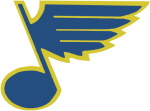 |
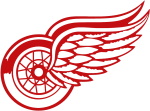 |
||||||
| Indianapolis Checkers 1979-80 to 1983-84 |
Iowa Stars 1969-70 |
Kansas City Blues (I) 1967-68 to 1971-72 |
Kansas City Blues (II) 1976-77 |
Kansas City Red Wings 1977-78 to 1978-79 |
||||||
 |
 |
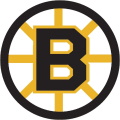 |
 |
 |
||||||
| Memphis South Stars 1967-68 to 1968-69 |
Memphis Wings 1964-65 to 1966-67 |
Minneapolis Bruins 1963-64 to 1964-65 |
Minnesota Rangers 1965-66 |
Montana Magic 1983-84 |
||||||
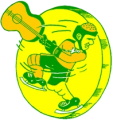 |
 |
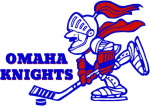 |
 |
|||||||
| Nashville South Stars 1981-82 |
Oklahoma City Blazers 1965-66 to 1971-72 1973-74 to 1976-77 |
Oklahoma City Stars 1978-79 to 1981-82 |
Omaha Knights 1963-64 to 1964-65 1966-67 to 1974-75 |
Phoenix Roadrunners 1977-78 |
||||||
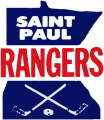 |
 |
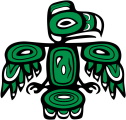 |
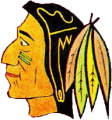 |
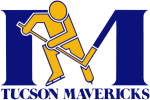 |
||||||
| Saint Paul Rangers 1963-64 to 1964-65 |
Salt Lake City Golden Eagles 1974-75 to 1983-84 |
Seattle Totems 1974-75 |
St. Louis Braves 1963-64 to 1966-67 |
Tucson Mavericks 1975-76 |
||||||
 |
 |
|||||||||
| Tulsa Oilers 1964-65 to 1983-84 |
Wichita Wind 1980-81 to 1982-83 |
|||||||||